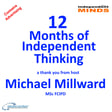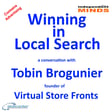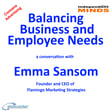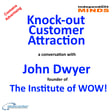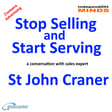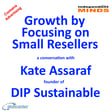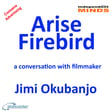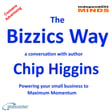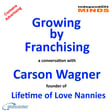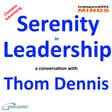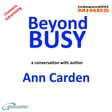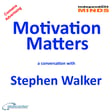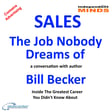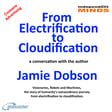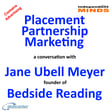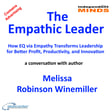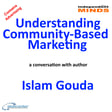
A Touch of the Madness – a conversation with author and film producer Larry Karsanoff
Larry Karsanoff is the CEO of Threshold Entertainment. He created all sorts of films from action blockbusters like the Terminator films and True Lies to children’s entertainment like the Lego movies.
Larry is also the author of A Touch of the Madness, a book in which he explains how to help people unleash their natural creativity.
In this episode of the Abeceder podcast The Independent Minds Larry uses stories from his career as a Hollywood film producer to explain to host Michael Millward the importance of fostering creativity and how employers can encourage their employees to be creative.
Along the way Larry also quizzes Michael about the creativity he has applied in establishing and running Abeceder.
The Independent Minds is made on Zencastr.
Zencastr is the all-in-one podcasting platform, on which you can create your podcast in one place and then distribute it to the major platforms.
Zencastr really does make creating content so easy.
If you would like to try podcasting using Zencastr visit zencastr.com/pricing and use our offer code ABECEDER.
Find out more about both Michael Millward and Larry Karsanoff at Abeceder.co.uk
Travel
As you would expect being a film producer, Larry is based in Los Angeles California. USA.
Michael explains that he has visited Los Angeles, and next time he visits he will be making his travel arrangements with The Ultimate Travel Club, because as a member that is where he can access trade prices for flights, hotels and holidays. You can also become a member at a discounted price by using my offer code ABEC79when you join-up.
Three the network
If you are listening to The Independent Minds on your smart phone, you may like to know that Three has the UK’s Fastest 5G Network with Unlimited Data, so listening on Three means you can wave goodbye to buffering.
Visit Three for information about business and personal telecom solutions from Three, and the special offers available when you quote my referral code WPFNUQHU.
Being a Guest
If you would like to be a guest on The Independent Minds, please contact using the link at Abeceder.co.uk.
We recommend that potential guests take one of the podcasting guest training programmes available from Work Place Learning Centre.
We appreciate every like, download, and subscriber.
Thank you for listening.
